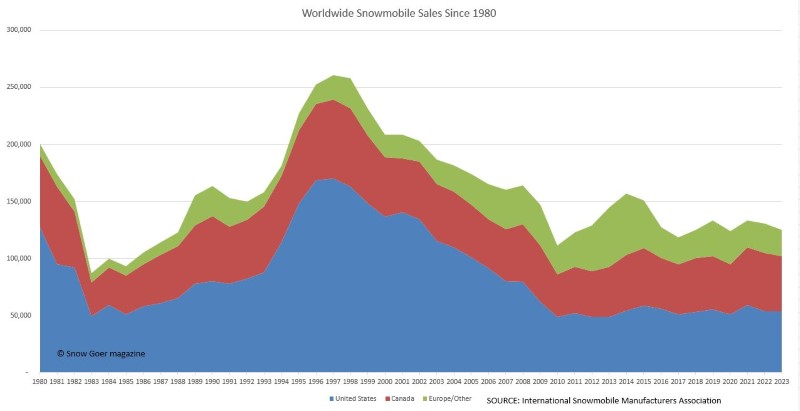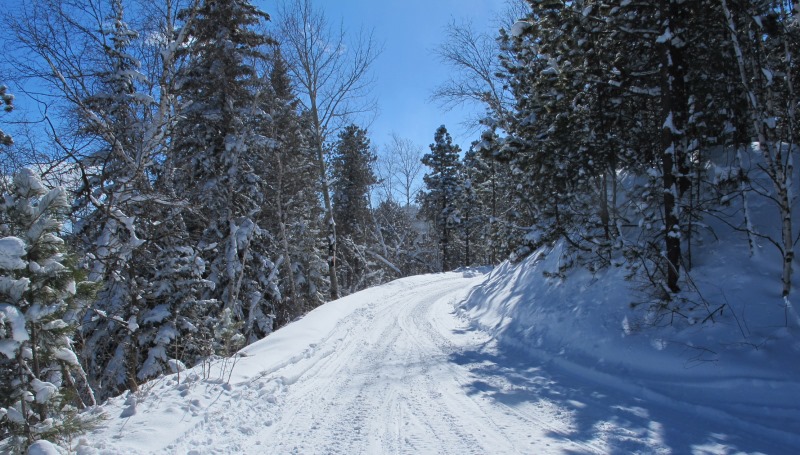Sales of new snowmobiles rose by 6.6 percent worldwide in the recently completed 2019 sales season, driven by voluminous snow and long winters in some key sales areas. New sled sales increased by 3.5 percent in the U.S., by impressive double-digit figures in key Scandinavian countries but dipped slightly in Canada.
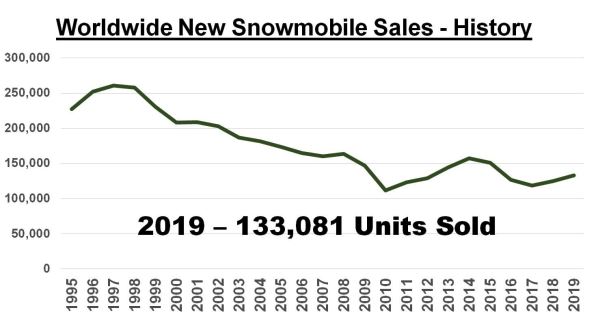
The figures, announced June 7 at the International Snowmobile Congress (ISC) in Grand Rapids, Michigan, by Ed Klim of the International Snowmobile Manufacturers Association (ISMA), reflect current and non-current new snowmobiles sold and delivered to consumers between May 1, 2018 and April 30, 2019, and do not include spring-ordered 2020 snowmobiles.
“In the world, we’re up about 7 percent, so from my little chair in East Lansing/Haslett, Michigan, we outperformed the growth of GDP in the United States, we way outperformed Canada, and we outperformed almost every country including China,” Klim said when addressing grass roots leaders and delegates at the ISC event. “Isn’t it amazing what happens when it snows?”
North American Sales
Sales in the U.S. were buoyed by snow that arrived late but then stuck around in key markets in the Upper Midwest and West in particular, allowing dealers to not just sell 2019 models but also carryover 2016, 2017 and 2018 models that remained in inventory.
U.S. sales grew to 55,025 units, compared to 53,179 machines in the 2018 sales season and 50,659 in 2017. Regionally, about 41 percent of the new snowmobile sales occurred in the Upper Midwest, 30 percent in the West and 29 percent in the Northeast, Klim said.
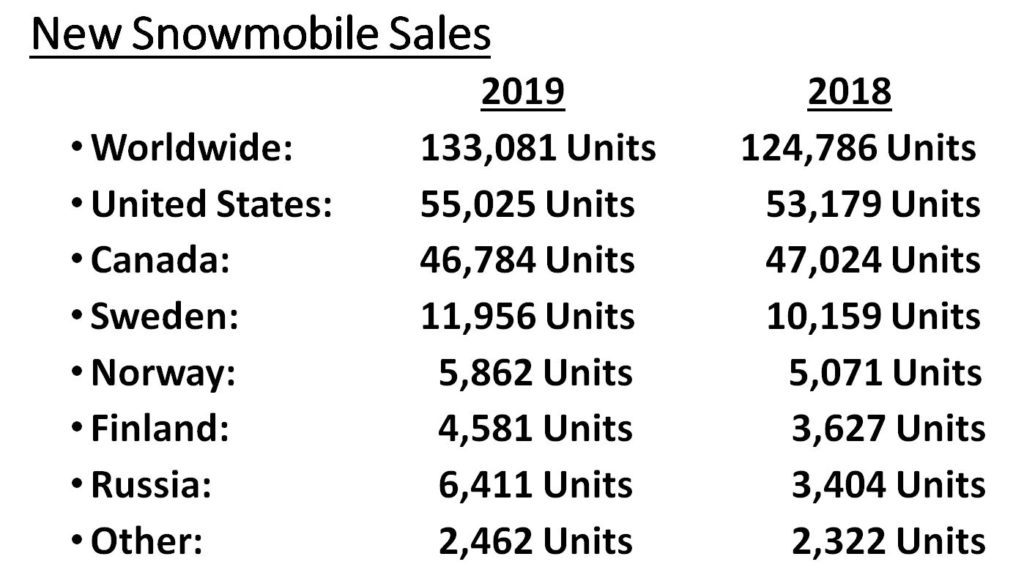
In Canada, new snowmobile sales dipped slightly – by 240 units to be exact – dropping from 47,024 in the 2018 sales season to 46,784 in 2019, a net decrease of 0.6 percent. By comparison, 44,161 were sold in Canada in 2017. Klim said sales in eastern Canada were strong – mentioning that Quebec specifically saw a big increase, growing to 17,885 new snowmobile sales – while western Canadian sales continued to lag, continuing a trend that started in 2015.
Overall, there are now 1,236,439 registered snowmobiles in the U.S. and 599,696 in Canada, Klim reported.
Big Growth Overseas
Sweden recorded its highest level of snowmobile sales ever, Klim said, while Russia experienced an 88 percent year-over-year growth but still lags far behind where it was at earlier in the decade.
In Sweden, sales increase by 17.7 percent, jumping to 11,956 units compared to 10,159 machines the year before. Neighboring Finland jumped 26.3 percent – going from 3,627 to 4,581 – and Norway moved from 5,071 to 5,862, according to the ISMA numbers.
“In Norway, we’re up about 15 percent, and every year it’s going to grow because every year they’re going to build a few more trails,” Klim said. “The Norwegian government is very supportive of snowmobiling – they were not 10 years ago, but they are today. That’s the big, big, big difference.”
Taken only as a percentage, the biggest burst of new sled sales came in Russia, where sales increased 88 percent – from 3,404 units in 2018 to 6,411 in 2019. That mighty increase, though, comes after an even mightier fall – new snowmobile sales in Russia topped 30,000 units in both 2013 and 2014 before collapsing along with the Russian economy due in large part to political and economic issues.
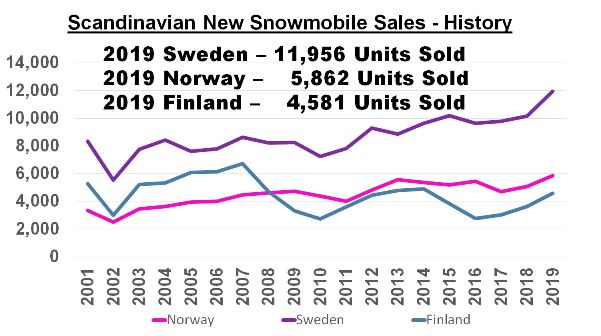
Other than in the six countries already named (the U.S., Canada, Sweden, Finland, Norway and Russia) there are always a few snowmobiles sold here-and-there elsewhere in the world as well – countries like Iceland, Japan, Chile, New Zealand, etc. Those sales totaled 2,462 machines compared to 2,322 in 2018.
Optimistic Outlook
For the assembled grassroots leaders, Klim went through several “determinants of demand” that affect sales in any market – including disposable income, relative wealth, consumer confidence, price and availability of related goods, population and other factors – and painted a rosy picture for potential growth in the market going forward.
But ultimately, snowmobilers buy sleds and spend money on their favorite hobby when it snows, Klim pointed out, noting that last winter the average rider put more miles on their snowmobiles than in previous years, according to an ISMA study.
“We rode quite a bit more, and that’s pretty good news for us,” Klim said. “The more you ride, the more you break, the more you buy. The more you ride, the more worn the snowmobile gets, or maybe you’re going to replace it. The more you ride, the more you spend in hotels, restaurants, gasoline, the whole 9 yards. It’s a good story.”
Editor’s Note: Every issue of Snow Goer magazine includes in-depth sled reports and comparisons, aftermarket gear and accessories reviews, riding destination articles, do-it-yourself repair information, snowmobile technology and more! Subscribe to Snow Goer now to receive issues delivered to your door 6 times per year for a low cost.

